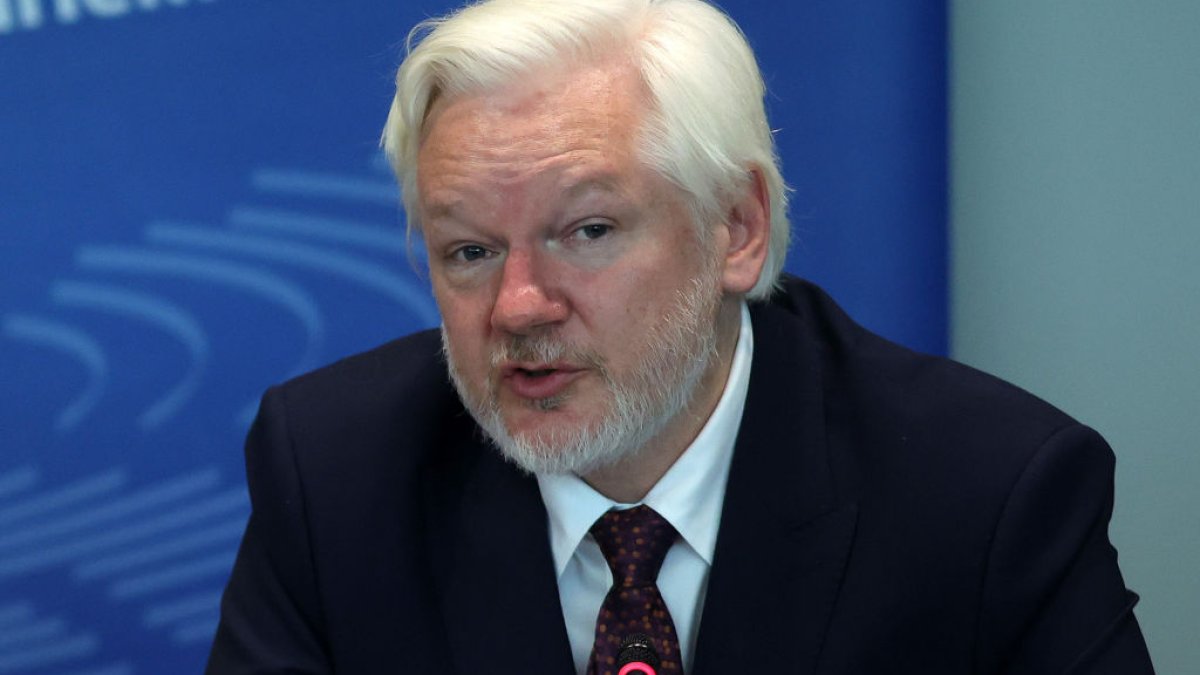The founder of WikiLeaks, Julian Assange, broke his silence after regaining his freedom and said on Tuesday that he was free after years in prison because he pleaded guilty to journalism.
Assange gave his testimony about the impact of his arrest and conviction on human rights before the Legal Affairs and Human Rights Committee of the Parliamentary Assembly of the Council of Europe in Strasbourg, France. The Assembly includes parliamentarians from 46 European countries.
“Today I am not free because the system has worked,” Assange said in his first public statements since his release in June. “Today I am free after years of imprisonment because I pleaded guilty to journalism.”
“I pleaded guilty to seeking information from a source,” he added.
Assange was freed in June after spending five years in a British prison after pleading guilty to obtaining and publishing US military secrets, in a deal with US Justice Department prosecutors that ended a long legal saga. Before entering the prison, he spent seven years in self-imposed exile in the Ecuadorian embassy in London, where he requested asylum from political persecution.
The Australian digital publisher was accused of receiving and publishing hundreds of thousands of war reports and diplomatic cables that included details of irregularities committed by the US military in Iraq and Afghanistan. His activity was celebrated by defenders of press freedom, who praised his work in exposing military conduct that might otherwise have remained hidden.
Among the files released by WikiLeaks was a video of the 2007 attack by US forces on an Apache helicopter in Baghdad, which killed 11 people, including two Reuters journalists.
But critics allege that his conduct endangered American national security as well as the innocent lives of those who reported to Washington’s troops in Iraq and Afghanistan, and deviated from the obligations of traditional journalism.
The protagonist of the largest leak of classified documents in history was holed up in the Ecuadorian embassy for 7 years and imprisoned in London for another 5 years. To see more from Telemundo, visit
The dispute ended with Assange pleading guilty in a US district court in the Northern Mariana Islands, an unincorporated US territory in the Pacific.
Assange pleaded guilty to one count of conspiracy, under the Espionage Act, to illegally obtain and disseminate classified national defense information. A judge sentenced him to the five years in prison he had already served in the United Kingdom while fighting his extradition to the United States.
He returned to Australia a free man at the end of June. His wife, Stella, then said that Assange needed time to recover before speaking publicly again.
His appearance on Tuesday comes after the Parliamentary Assembly of the Council of Europe published a report on his detention in a British high-security prison for five years.
The assembly’s human rights committee indicated that Assange qualified as a political prisoner and issued a draft resolution expressing deep concern about his treatment.

